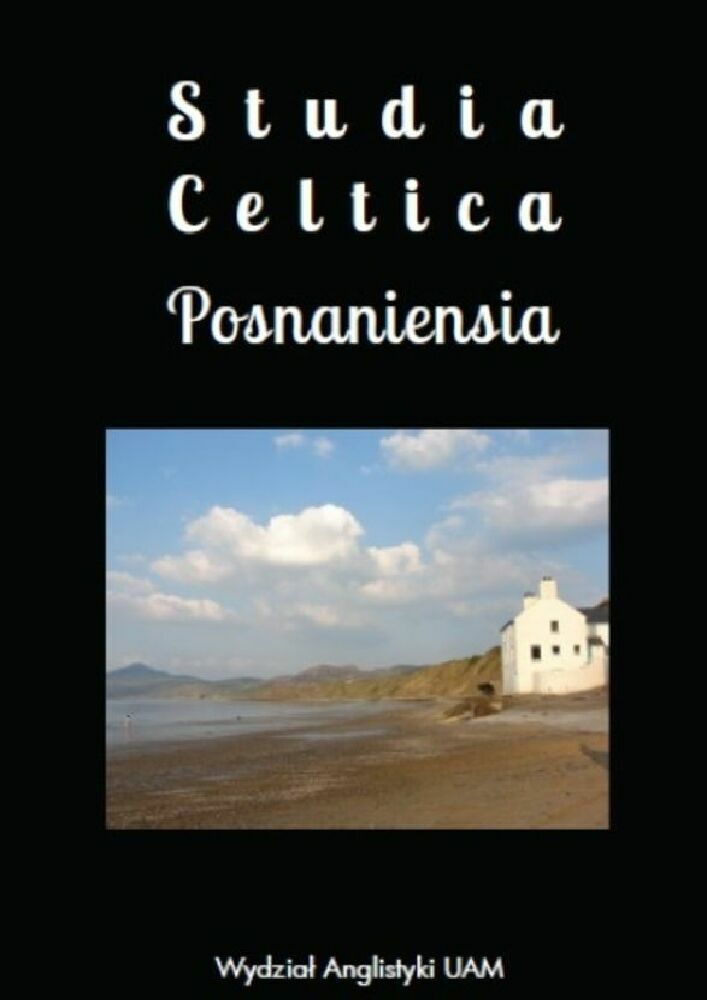Abstract
The attribution of names is a significant process that often highlights concerns over identity, ideology and ownership. Within the fields of minority languages and Celtic Studies, such concerns are especially pertinent given that the identities in question are frequently perceived as under threat from dominant cultures. The effect of concerns caused by this can be examined with reference to revived Cornish, which became divided into three major varieties in the later twentieth century; by examining the names of these varieties, we can draw conclusions about how they are perceived, or we are invited to perceive them. The motivations of those involved in the Cornish language revival are equally reflected in the names of the organisations and bodies they have formed, which equally contribute to the legitimation of revived Cornish. This paper examines both these categories of name, as well as the phenomenon of Kernowisation, a term coined by Harasta (2013) to refer to the adoption of Cornish personal names, and here extended to the use of Cornish names in otherwise English-language contexts. Examining the names that have been implemented during the Cornish language revival, and the ways in which they are used or indeed refused by those involved, gives us an insight into the various ideologies that steer the revival process. Within the context of the precarious nature of Cornish and Celtic identity, we can identify the concerns of those involved in the Cornish revival movement and highlight the role of naming as an activity of legitimation, showing how the diversity of names that occur reflects an equally diverse range of motivations and influences.
References
Amery, Rob and Georgina Yambo Williams. 2009. “Reclaiming through renaming: The reinstatement of Kaurna toponyms in Adelaide and the Adelaide Plains”, in: Louise Hercus, Flavia Hodges and Jane Simpson (eds.). The land is a map: Placenames of indigenous origin in Australia. Canberra: ANU Press, 255-276.
Brown, Wella. 1987. “Deryvas a'n cuntellas a vern synsys dhe'n 13ves a vys Metheven yn kever lytherennans”, An Gannas 127, 2-3.
Brown, Wella, Denise Chubb, Ray Chubb, Neil Kennedy and Jane Ninnis. 1991. The Cornish language. Unpublished report.
Combellack, Myrna. 1978. “Twelve years’ progress in Unified Cornish, 1967 to 1979”, Cornish Studies 6, 45-51.
Ferdinand, Siarl. 2013. “A brief history of the Cornish language, its revival and current status”, Journal of Interdisciplinary Celtic Studies 2, 199-227.
Gendall, Richard. 1988. Laugh and learn traditional Cornish through cartoons and cassette: A new course in Cornish for the beginner. Menheniot: Teere ha Tavaz.
Gendall, Richard. 2000. Tavas a ragadazow: The language of my forefathers. Menheniot: Teer ha Tavas.
Gendall, Richard. 2007. The course of true love: A view over the battlefield of revived Cornish. Unpublished paper.
George, Ken. 1986. The pronunciation and spelling of revived Cornish. Penzance: Cornish Language Board.
George, Ken. 1993. Gerlyver Kernewek Kemmyn: An gerlyver meur. Penzance: Cornish Language Board.
George, Ken. 1995. “Which base for revived Cornish?”, in: Philip Payton (ed.). Cornish Studies: Three. Exeter: University of Exeter Press, 104-124.
Harasta, Jesse. 2013. In search of a single voice: The politics of form, use and belief in the Kernewek language. PhD thesis, Syracuse University.
Kennedy, Neil. 2013. Employing Cornish cultures for community resilience. PhD thesis, University of Exeter.
Koch, John. 2003. “Celts, Britons and Gaels: Names, peoples and identities”, Transactions of the Honourable Society of Cymmrodorion New Series 9, 41-56.
Mac Giolla Chríost, Diarmait. 2012. Jailtacht: The Irish language, symbolic power and political violence in Northern Ireland, 1972-2008. Cardiff: University of Wales Press.
MacKinnon, Ken. 2000. Cornish at its millennium: An independent study of the language. Dingwall: SGRÙD Research.
Nance, Robert M. 1929. Cornish for all. St Ives: Federation of Old Cornwall Societies.
Nance, Robert M. 1952. An English-Cornish dictionary. St Ives: Federation of Old Cornwall Societies.
Ó Néill, Diarmuid. 2002. “Scottish-Gaelic (in Scotland)”, in: Diarmuid Ó Néill (ed.). Rebuilding the Celtic languages: Reversing language shift in the Celtic countries. Talybont: Y Lolfa, 338-365.
Payton, Philip J. 2000. “Cornish”, in: Glanville Price (ed.). Languages in Britain and Ireland. Oxford: Blackwell, 109-119.
Price, Glanville. 1984. The languages of Britain. London: Edward Arnold.
Rose-Redwood, Reuben. 2016. “‘Reclaim, rename, reoccupy’: Decolonising place and the reclaiming of PKOLS”, ACME: An International Journal for Critical Geographies 15(1), 187-206.
Rymes, Betsy R. 1996. “Naming as social practice: The case of Little Creeper from Diamond Street”, Language in Society 25, 237-260.
Rymes, Betsy R. 1999. “Names”, Journal of Linguistic Anthropology 9, 1-2.
Sayers, Dave. 2012. “Standardising Cornish: The politics of a new minority language”, Language Problems and Language Planning 36, 99-119.
Wakelin, Martyn F. 1975. Language and history in Cornwall. Leicester: Leicester University Press.
Williams, Nicholas J. A. 2006. Writings on revived Cornish. Westport: Evertype.
License
Copyright (c) 2017 The Faculty of English, Adam Mickiewicz University

This work is licensed under a Creative Commons Attribution-NonCommercial-NoDerivatives 3.0 Unported License.
